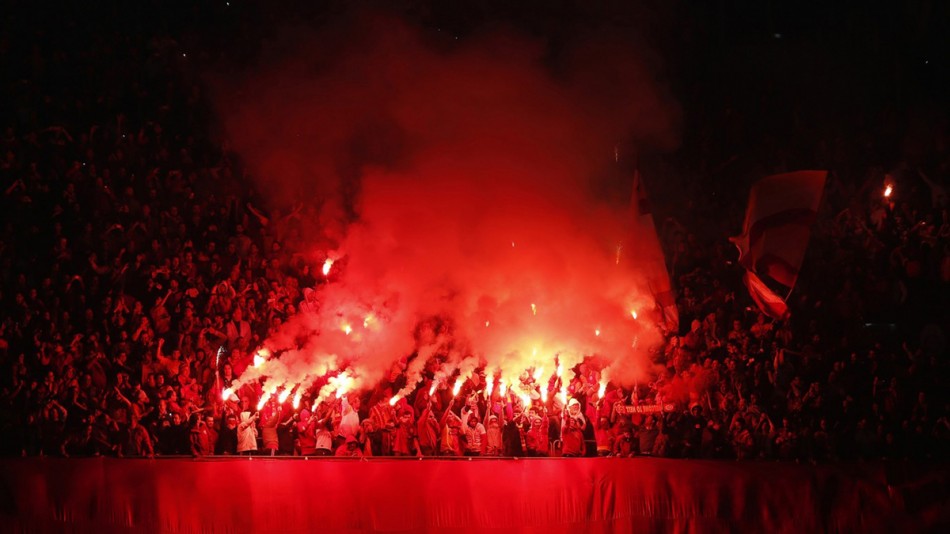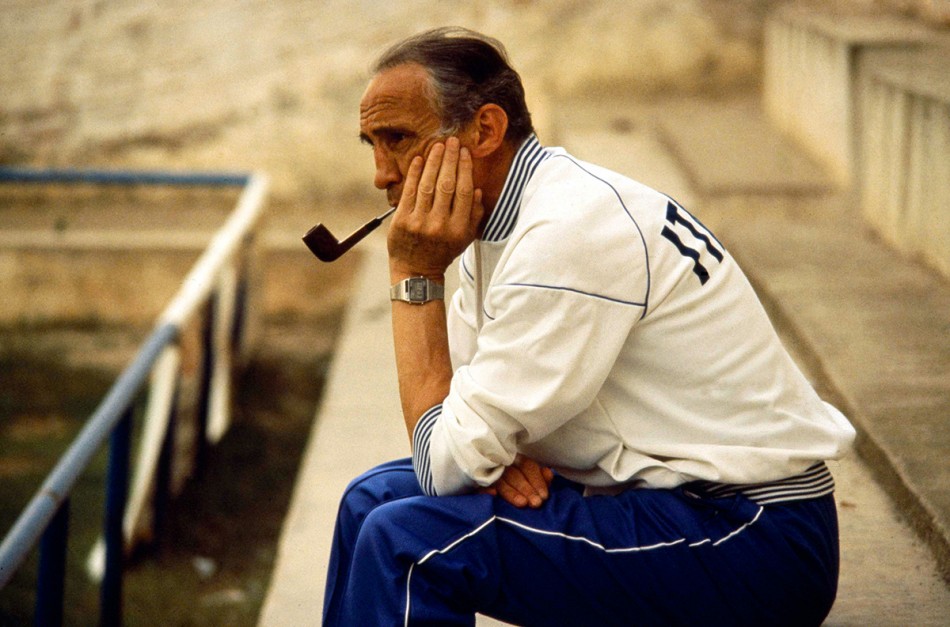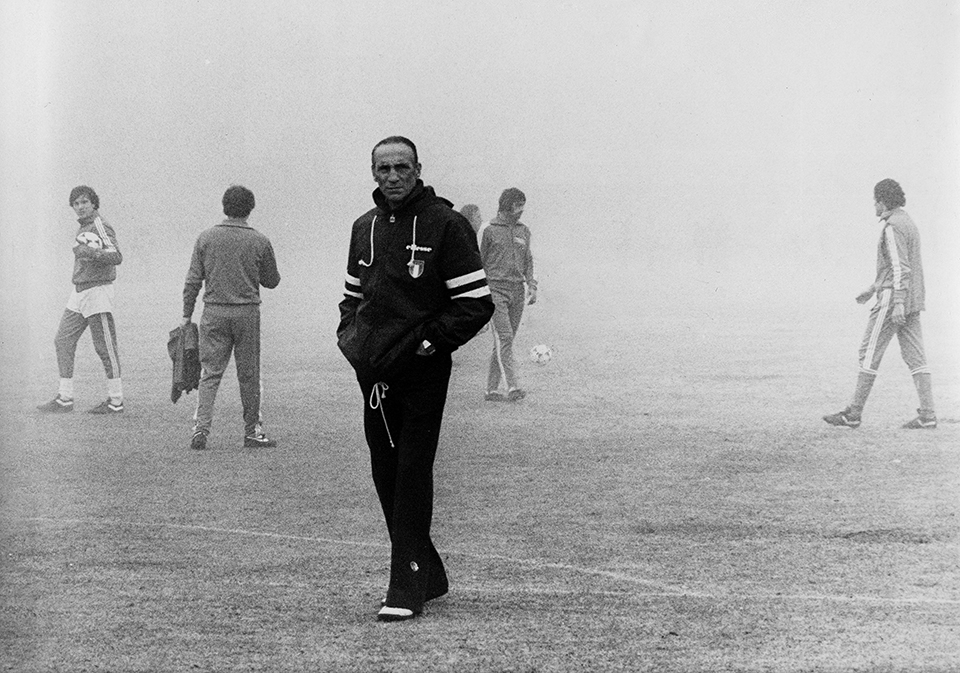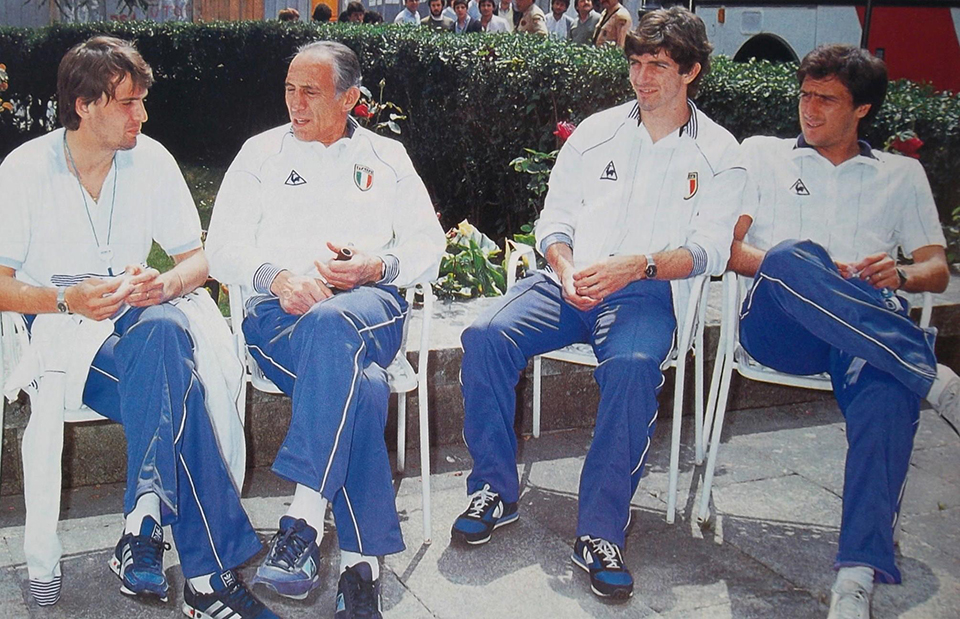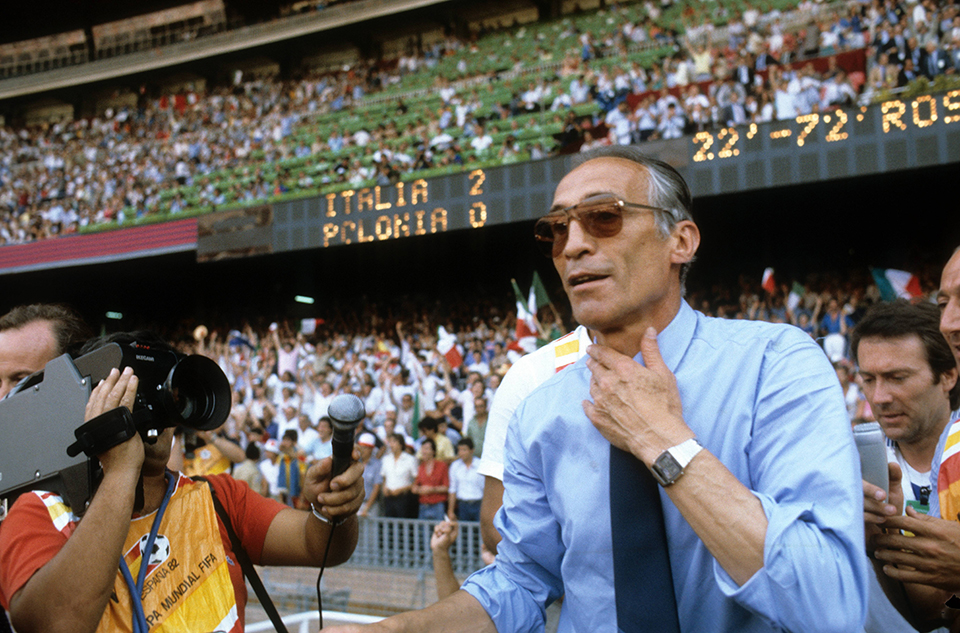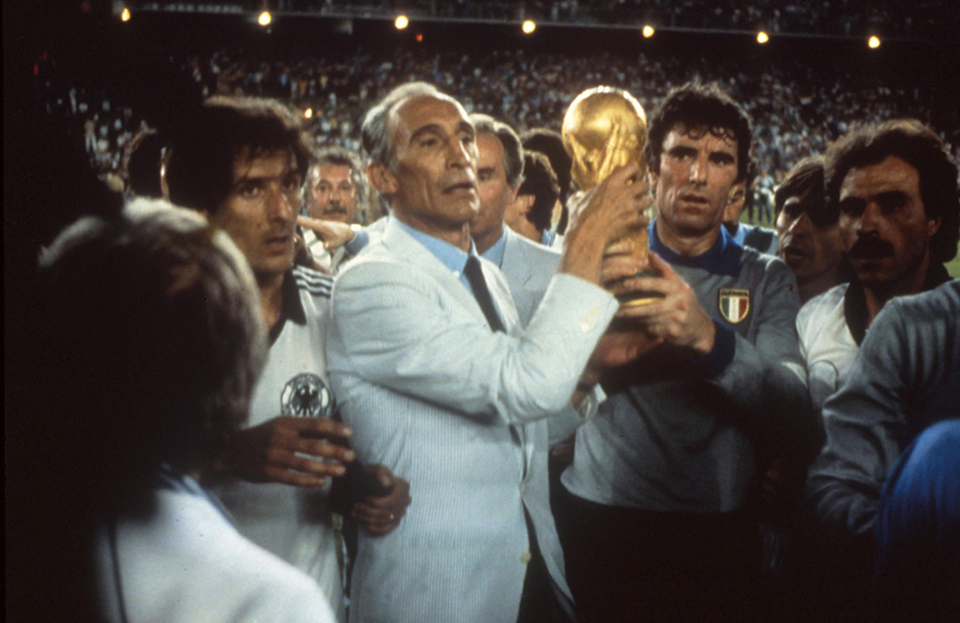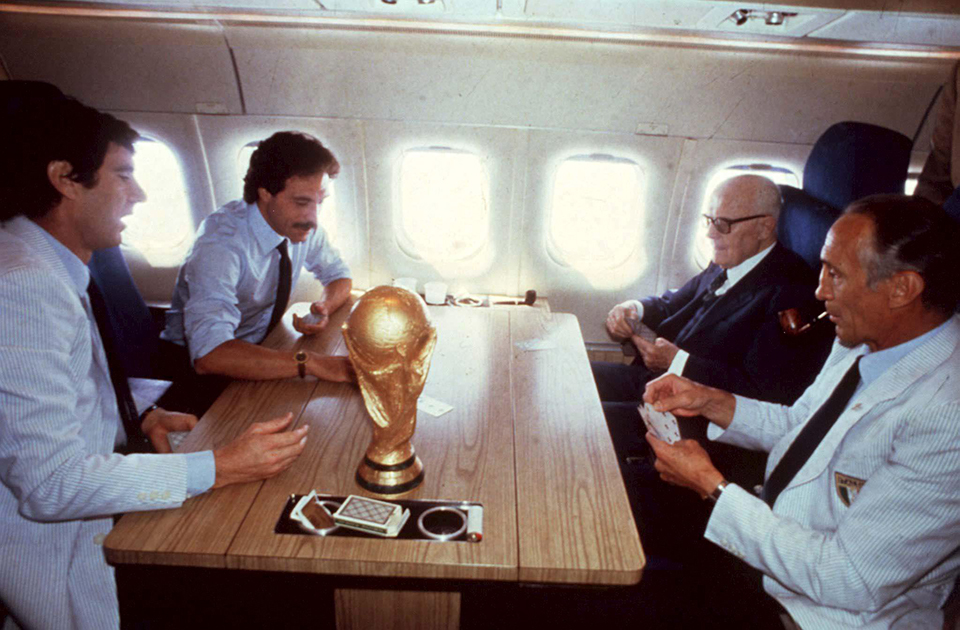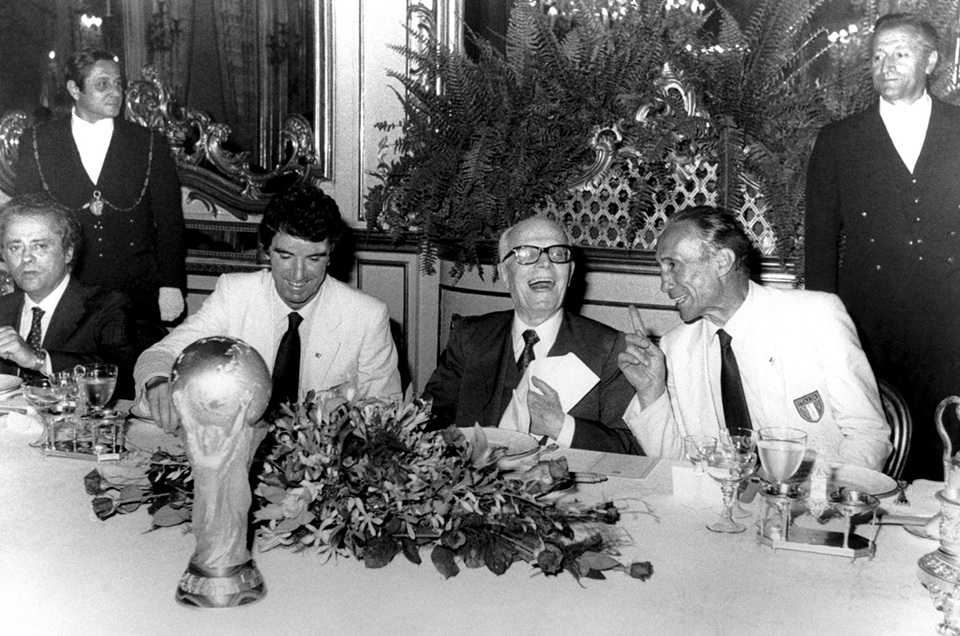On the night of July 9th, 2006 — just hours after Zinedine Zidane had ended his career in infamy, indirectly propelling Italy to World Cup glory — I spotted the following slur freshly scrawled in bright red paint over a shuttered Florence storefront: “LA MAMMA DI ZIDANE E’ UNA PISANA”. That Florentine Azzurri fans could imagine no greater ignominy than to infer that the disgraced Frenchman’s maternal relatives hail from Pisa said everything about Italy’s pervading sense of regionalism, and beyond that, campanilismo, or town-based identity.
For this reason I was surprised to hear the comments of Sam Wallace from The Independent newspaper this weekend. “You go to Stoke, they’ve got an identity,” Wallace opined during a discussion about Serie A on Sky Sports’ Sunday Supplement video podcast. “You go to Bolton and that club’s got an identity. When I watch Serie A you don’t feel that so much about the smaller clubs there.” This stunningly ill-conceived statement reminded me of the joke about the tourist who visits Paris only to complain that everyone’s speaking French. Obviously, if you’re not Italian, if you’ve never spent time in Italy nor choose to read La Gazzetta dello Sport on a daily basis, you can’t expect to have the same cultural awareness of the game in that country as those that are, have and do.
Though less expected from the mouth of a journalist from one of Britain’s most respected liberal-leaning newspapers, Wallace’s highly ignorant take on Italian football is indicative of opinion at large among soccer fans in the UK, where Serie A is routinely dismissed as defensive, cynical and boring. As is often recalled, this wasn’t always the case. Twenty years ago Serie A was widely regarded as the greatest league in the world, and in the mid-1990s Channel 4’s coverage of the Italian championship regularly drew more viewers than the Premier League on Sky Sports.
In the ensuing years, sponsorship, multi-million television deals and an influx of foreign talent have ensured that the Premier League is today the richest and most popular football league on the planet, making it one of the UK’s greatest exports. In the meantime Serie A has, as Shaun Custis of The Sun newspaper put it, “dropped off the map.” But how exactly did this once universally admired league fall out of favour? Though it is impossible to pinpoint a moment precisely, the tide seemed to be turning by the new millennium, and several individual matches certainly may have helped swing the tide in the minds of British fans.
The first incident worth citing is ten-man Italy’s elimination of hosts Holland at Euro 2000. Despite the Dutch missing five penalties during the game (two during the 120 minutes and three during the shoot-out), the BBC’s Barry Davies still summarized the match with a condescending dollop of disdain: “Who says cheats never prosper?” Two years later a series of bizarre refereeing decisions throughout the tournament led to Italy’s ultimate undoing at the World Cup. The erratic performance of referee Byron Moreno during the defeat to Korea provoked fans to speak of a possible conspiracy against the Azzurri, a notion dismissed by many in the British press as a case of sour grapes. Meanwhile Moreno has since served several suspensions in his native Ecuador, and in 2010 was arrested at New York’s JFK airport with six kilos of heroin packed in his underwear.
England fans should know better than most that the domestic game should not be judged by national team performances, yet it seems these two globally-televised matches were enough for many in the UK to form their own assessment of Italian football in general. The fact that Italy had provided both finalists in Europe’s premier club competition in 2003 might have suggested an upturn in Serie A’s fortunes. But for many observers the Champions League final at Old Trafford — a tensely fought affair between classic rivals Juventus and Milan — seemed ample confirmation of Serie A’s demise, a conclusion apparently drawn from the fact that the game ended goalless after extra-time.
Around this time Spain’s La Liga began to take the place of Serie A in the hearts of British fans who like their soccer spiced with a little Mediterranean glamour. Of course, the fact that La Liga was broadcast on Sky Sports also helped, as did the transfer of David Beckham to Real Madrid. By this point the Premier League was already starting to enjoy its new-found status as a global luxury product, garnering new admirers but also encouraging the attitude of the insular English soccer fan. Britain as a society watches far more television than their counterparts in southern Europe, making them especially susceptible to the excessive and manipulative levels of hype surrounding football coverage in the UK media.
I don’t believe the changes in attitude towards Serie A can be based purely on football. What no-one seems to have picked up on is that the general disregard for Italian football these days is mirrored by a cultural-economic shift in Italy’s standing in the world, and a definitely detectable downturn in the country’s image abroad. Though still a highly desirable destination for Brits, Italy as a nation was once more revered than any other for its art, fashion, food and, of course, football. Thanks to cheap air travel all of that has now been conquered, and suddenly Italy is no longer di moda. Just as many journalists use Silvio Berlusconi’s careless remarks and behaviour to depict an entire country as ignorant and corrupt, so soccer fans, sports writers and even casual observers let their perception of a country as a whole to subconsciously influence their take on every product coming out of Italy, especially football.
Italian fans have sometimes been accused by British visitors of aggression, particularly during matches in European competition. Whether occurring in Italy or anywhere else, problems with violence in and around the stadium have little to do with football, and much more to do with society at large. Whatever you want to call it — sporting pride, peer pressure, twisted machismo, boredom — when a Sicilian teenager feels compelled to throw a fatal flare at a policeman in Catania, a nation and its national game can hardly be held responsible.
I’ve attended home matches at the two biggest and best-supported teams in Spain, and in both cases the match-day experience was underwhelming in comparison to what I’ve seen in Serie A stadia, at least in terms of atmosphere. While the Premier League has been extremely successful in refashioning the stadium as a safe and lucrative venue for all the family, at the same time something has been lost. The last time I went to a game in England I was greeted with a lengthy list of objects which weren’t permitted inside the ground, including flag poles and cameras. Fan participation is integral to the stadium experience, and Italian supporters use a colourful combination of flares, flags, banners and sophisticated choreography to galvanize each other and their team. You can learn a lot about a place and a people by spending an afternoon on the terraces.
The 2006 World Cup began with Italy crawling from the debris of a match-fixing scandal that rocked calcio to its very core, lending further heat to the foreign scorn to which the Italian game had by now become used. Italy’s subsequent triumph in Berlin was a significant, if short-lived, rebuttal to fans and press that had spent the previous months dragging the country through the mud. Unfortunately, calciopoli’s intermittent aftershocks — the most recent occurring only last summer — have hindered Serie A’s potential for returning to the forefront among football fans outside Italy. Naturally, many often connect the scandal to the loss of Serie A’s appeal. While it has certainly damaged the credibility of the league and the sport’s governing bodies, the problem of corruption in Italy is hardly a new development — that it should extend sometimes to football is inevitable. Do people think Italy was some clean and wholesome place during the Baggio era? Most hypocritical however, is the high-minded attitude that such a situation could never happen anywhere else.
Italian football would stand a greater chance in the UK if it were shown regularly on British television. Sadly, since Channel 4 ceased to broadcast Serie A in 2003, the league has been passed between various terrestrial and cable networks without ever finding a settled home. The resulting effect is that British viewers have mistaken the absence of Italian football from their screens for their own choice not to watch — a case of not wanting what isn’t put in front of you.
Perhaps inevitably, the fiercest criticisms of Serie A come from those who don’t watch it. Whether or not it’s a preference for remaining oblivious to what they might be missing out on, it’s frustrating to hear the Italian game belittled by those without the facts or experience to back up their claims. I’ve been watching Italian football on a weekly basis for almost twenty years: on Channel 4 as a teenager, while living in Florence during my twenties, and now from my home in New York, where multiple live Serie A games are beamed into my apartment every weekend. Italy may no longer be a haven for the world’s elite: today’s top players are more evenly spread throughout Europe, but this has more to do with a leveling of football’s economic playing field than a case of Serie A having lost its appeal. While the Premier League has been undoubtedly enriched by the arrival of top-quality foreign players (many of whom continue to arrive directly from Italy), the actual quality of Italian football has never waned. It remains a highly competitive and notoriously tough league, populated by technically gifted players and coaches whose tactical awareness is unparalleled.
Some anti-calcio commentators cite a lack of competition in Serie A, another inaccurate assumption vastly outweighed by the frequency of one-sided matches in both the Premier League and La Liga. In Spain, Barcelona have racked up a 5-0 scoreline on three occasions already this season, and even fired eight without reply past poor Osasuna. Likewise, rivals Real Madrid’s wins so far have included a 6-0 and a 6-2. In England, Manchester United recently demolished Arsenal 8-2. The last time that scoreline was registered in Serie A was sixteen years ago. In the first five weeks of this season, no team in the Italian top flight has won a match by more than three goals.
The golden era of the sette sorelle — when Serie A boasted up to seven sides likely to challenge for the scudetto — may have passed. Modern football deems that Europe’s top leagues are ultimately dominated by the usual two or three powerhouse teams. Certainly some of famous Italian clubs, such as Sampdoria, Fiorentina, Napoli and Torino have endured a turbulent last fifteen years, all spending time in lower divisions. But recently, the relatively cautious approach employed by Italian clubs in the transfer market has promoted a stronger league of competitive sides, while encouraging the emergence of local talent. In Italy, perhaps more than anywhere else, it seems no team is impervious to defeat, even against the most unfancied opposition. Early last season eventual champions Milan were beaten by newly-promoted Cesena, while just last month Inter suffered a 3-1 loss at Novara, a provincial side playing their first Serie A home game since 1955. I doubt the Novara fans suffered a crisis of identity that night.
The complete reversal in UK attitudes towards Italian football over the last decade seems unfounded and essentially without substance, appearing instead to be based solely on conjecture and common misconception. How could the game have changed so much, so rapidly? The ball is still round. The Independent’s Sam Wallace — and other narrow-minded journalists and soccer fans — would do well to buy a plane ticket to any city in Europe, or even simply pick up the remote. They’d find a host of channels besides Sky Sports, and a whole world beyond our shores playing their own beautiful game.
